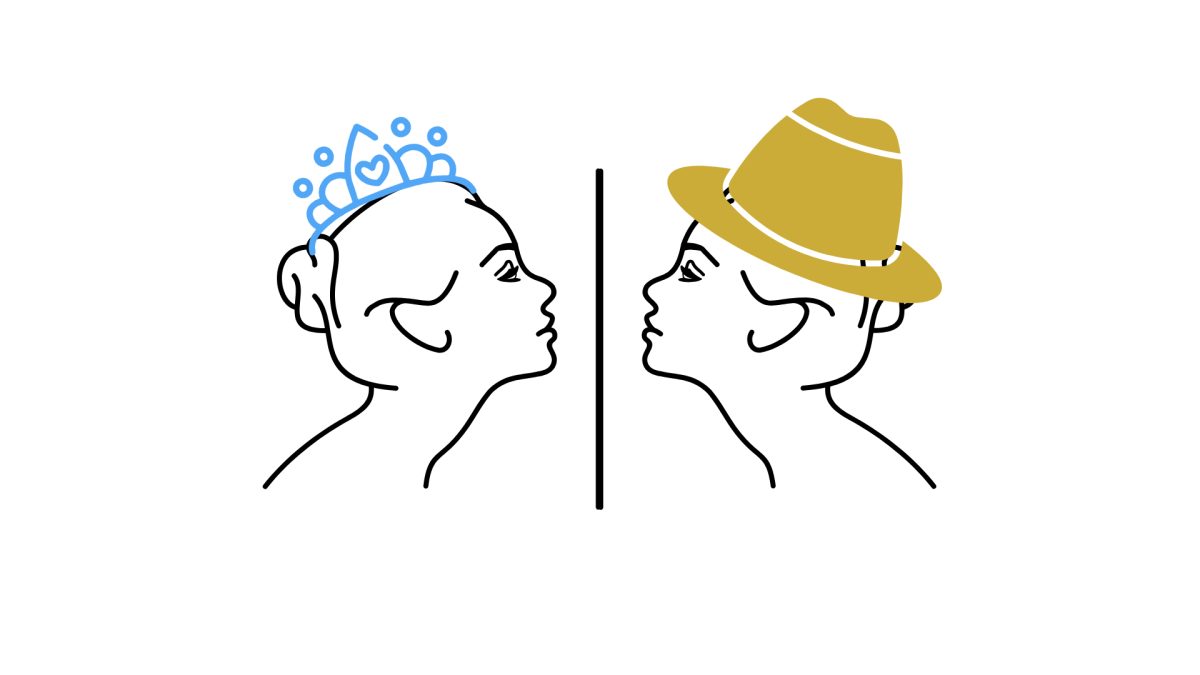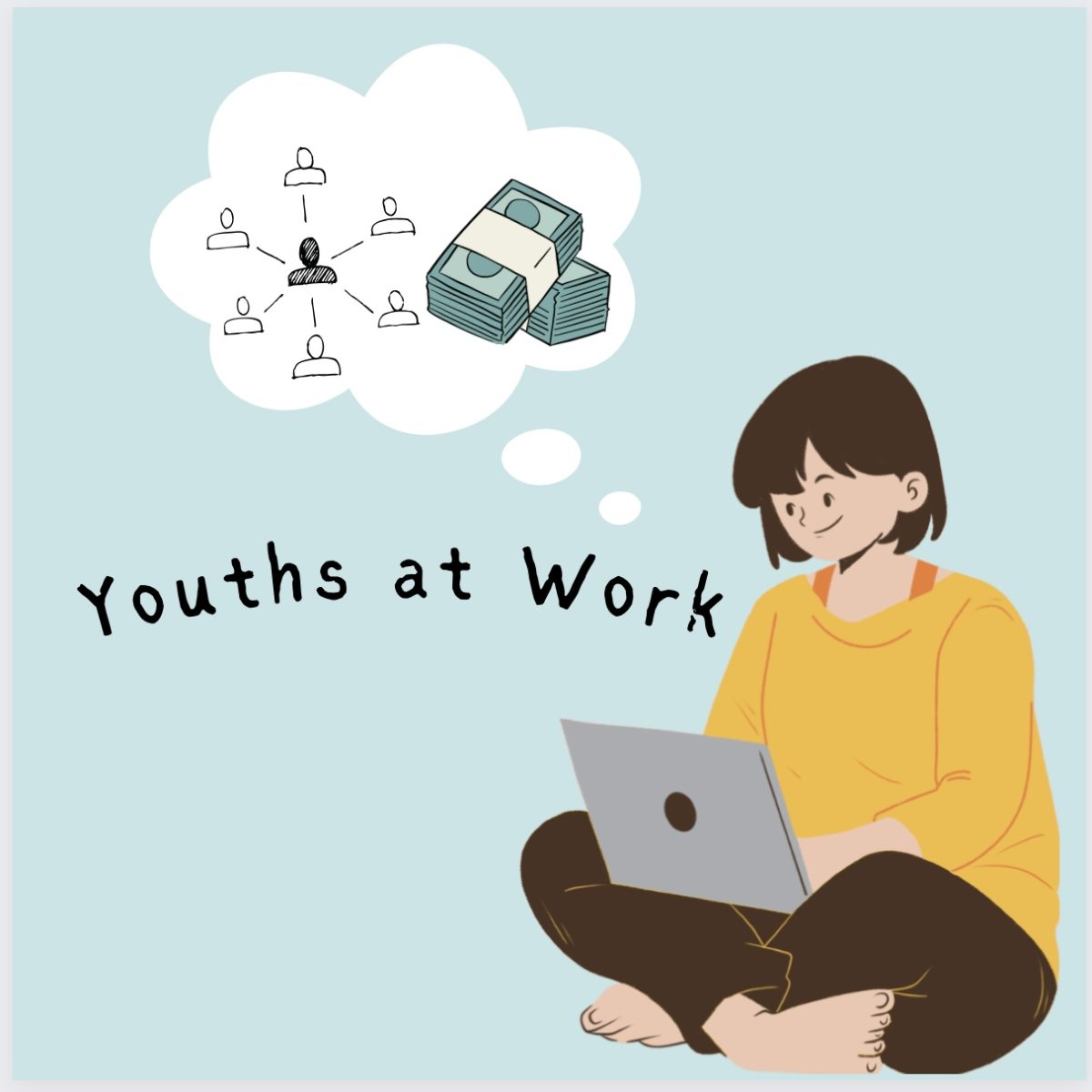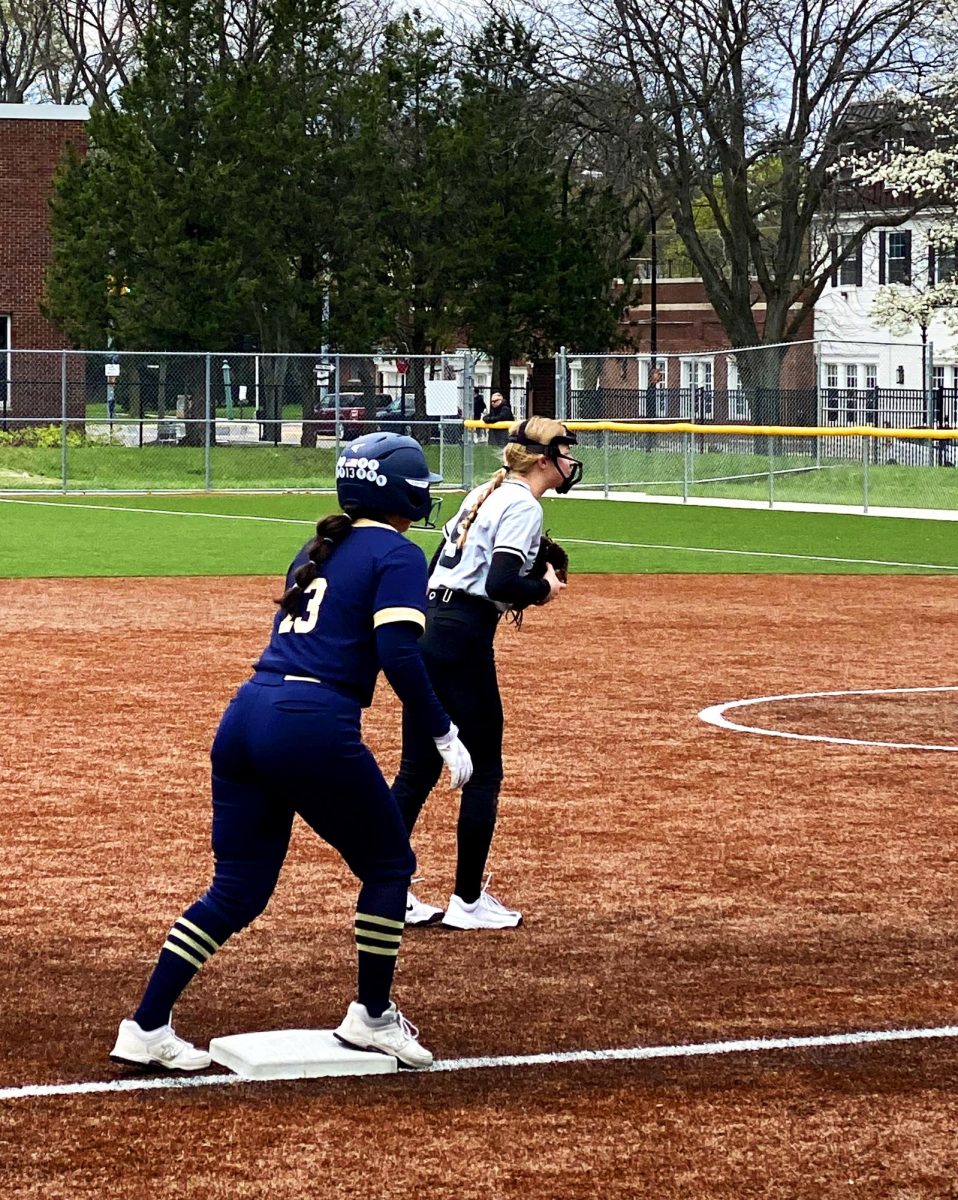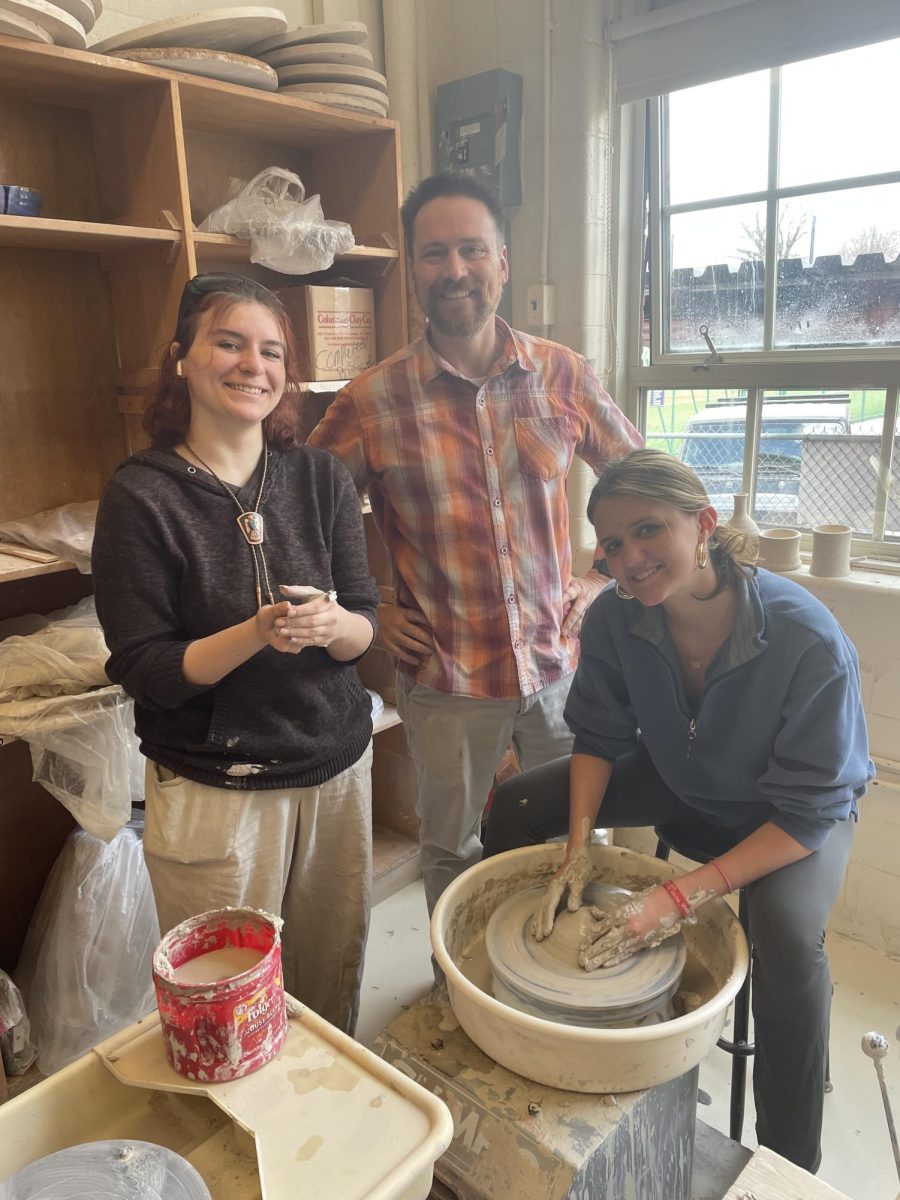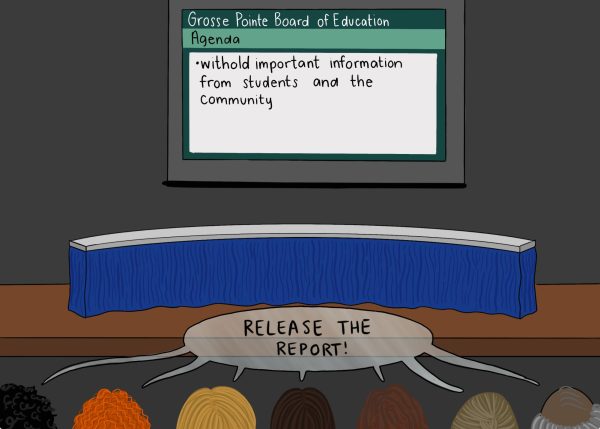“The Talk”
Examining the parent-child relationships of sex education within the home.
While growing up, children can be exposed to the idea of sex early on through media, television and gossip. In efforts to make kids feel comfortable, some parents may give their child a “talk” to elaborate sex.
“The talk” has arrose to a debate among parents if they should or should not talk to their children. Audrey Leo ‘19 explained that a pro to having this conversation would be making the child more comfortable about the idea of sex while growing up.
“I think (the talk made me more comfortable) because I wasn’t necessarily ready and they came to me at an earlier time to make me feel more comfortable about it,” Leo said. “They wanted to make sure that I am comfortable with myself.”
Some parents have their children learn about sexual intercourse through a school-provided health ed. class and at Grosse Pointe South, a minimum of one semester health class is necessary for graduation.
“These kids think they know things, and they don’t,” health teacher, Nicole Westfall said. “So I usually start off with a pre-test, and they don’t know anything…I think the kids think they know a lot but they really need to learn a little more stuff.”
Another factor of the absence of the talk is that kids may feel lacking in information, even after having the class, according Daniella Dulworth ’19 said. She believes that the existence of a talk from parents leaves the opportunity to ask many questions, and elaborate on emotional connections and personal values, where a school-given talk may not.
“I was never given a talk by my parents. At Saint Paul, where I went to elementary school, in fourth or fifth grade you go ‘the talk’,” Dulworth said. “They narrowed it down to what (sex) physically is, but nothing actual, so I didn’t know anything after ‘the talk’.”
Leo admits that a child, having had “the talk”, can feel more complacent about the subject and be more open for discussion with future partners.
“I’m more comfortable to talk about it, I’m more comfortable to be safe about it. It’s not something I feel to hide about myself,” Leo said. “To them and to my secret personal life, that is something I’m more comfortable to talk about.”
Leo believes that the conversation with her parents assisted her outlook on sex and made her more comfortable regarding the topic.
“Sharing and exposing yourself to someone else can be really difficult. But someone you know, who is close to you, that comes to you and and tells you the facts and tells you what’s okay about it– a reliable source,” Leo said. “They just make you more comfortable about it… and that just kind of eased me up.”
Though some students who did not receive the talk from parents, like Dulworth, may not see the absence of the conversation as a major family issue or personality changing factor.
“I don’t think it has changed much, maybe I would be more open with my parents,” Dulworth said. “I think it would give me the possibility to talk to them but I don’t know if I would talk to them (about sex) in any situation anyway… but having that conversation with my parents vs how I learned it hasn’t changed why I am what I am.”
Leo revealed that the media and television can underrate the meaning of sex and pressure kids to engage in activity before sexual comprehension..
“I think throughout the media, and especially now-a-days through music, pictures and what kids throw around in class make it seem that it’s not really a big deal and to throw yourself out there when you not necessarily should,” Leo said. “But with a reliable source, it makes you feel like it’s a much more important thing.”
According to Dulworth, children who did not receive the talk may appreciate the blunt explanation of sex that may be portrayed. Generally, it’s depicted through television and media as the physical act without the values or emotional connections.
“My friends and the media does not sugar coat it,” Dulworth said. “So it’s not brought down to a this-is-an-awkward-conversation-i’m-having-with-my-child, this is my friends talking or the tv acting out the scenario and you just learn it straight forward.”
Dulworth also said that parents, depending on their depth of explanation of sex, may help a child feel more educated from the parents themselves or school.The health education department or media may give a more thorough explanation than parents would, leaving the student more educated from that source.
“I feel like if I’d been told by my parents instead of the school I would have known less about it because my parents would not have wanted to have the talk,” Dulworth said. “(If I had questions) I probably would google it or ask someone else other than my parents because we didn’t have that conversation.”
Tommy Thams, ‘19, agrees with Dulworth that schools can be the most thorough way to educate children.
“Schools are the best source of education for sex because it is easier to understand and it is an unbiased source, unbiased as in no religion or personal views interfering,” Thams said.
Though Thams, Dulworth, and Leo all agreed that a correct means of education is essential to growth and education, whatever the source may be. Without it, children can live without knowing the risks of STDs, statutory rape laws, and risks of pregnancy.
“If you don’t have a reliable source then you don’t know if you’re getting the correct information,” Thams explained. “And the correct information is essential to growing up and understanding yourself, it’s a crucial part of life.”



































